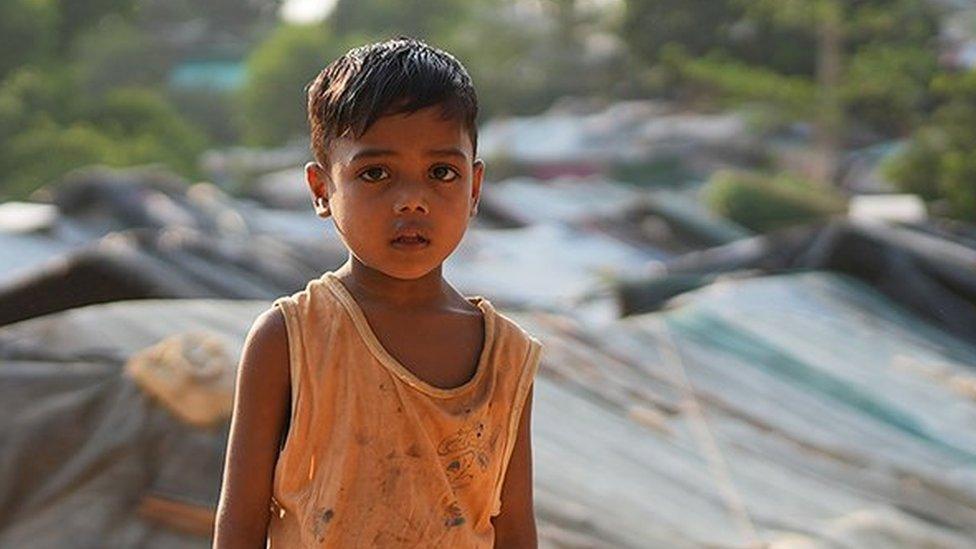Indonesia: Babies die on boats as locals chase Rohingya refugees
- Published
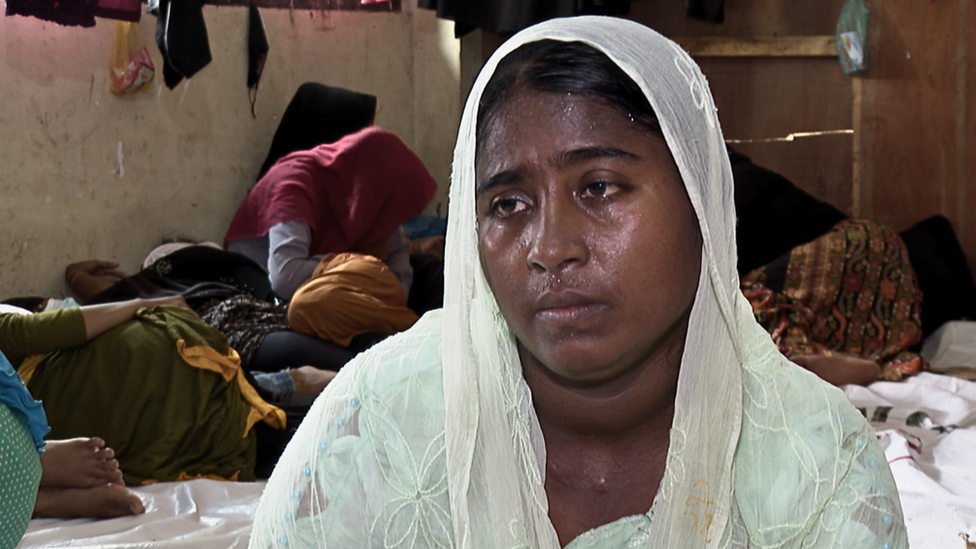
Yasmin Fatoum, 25, lost her daughter on the boat
When Yasmin Fatoum set sail to Indonesia with her two young children, she was hoping to escape squalid and violent conditions in Bangladesh's Cox's Bazar - the world's largest refugee camp, and home to about one million Rohingya Muslims.
But before the flimsy boat that she shared with about 250 other Rohingyas landed on the shores of Aceh province, Ms Fatoum, 25, saw her dream of a better life turn into another nightmare.
Angry villagers, who see the refugees as a strain on local resources, blocked the boat and pushed it back to sea twice.
Video footage seen by the BBC shows a local man shouting, "You can't dock here! Don't make us hit you!" as women and children wail in the background.
"When I first arrived in Indonesia, I had two children. But when they pushed away our boat, one of my children died because she was sick and we didn't have any food. We had to throw her body into the sea," Ms Fatoum told the BBC, holding back tears.
When the boat was finally allowed to dock after days of uncertainty, its occupants wept. In relief because their voyage had ended, but also in sorrow as they had lost three other babies onboard to illness and a lack of food.
Ms Fatoum is among 1,087 Rohingyas who arrived in Aceh in November. Indonesia's most westerly province currently hosts about 1,200 Rohingya refugees, nearly half of whom are children, according to data from UNHCR.
Rohingyas are an ethnic and unwanted minority in predominantly Buddhist Myanmar. Many of them fled to Bangladesh in 2017 to escape a campaign of what the UN has described as a possible genocide against them launched by the Burmese military.
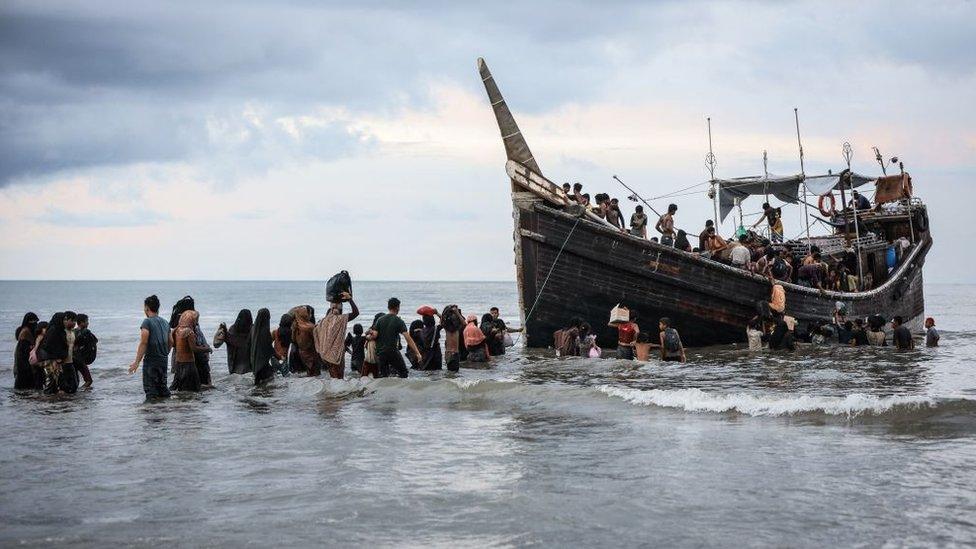
Rohingya refugees return to a boat after locals turn them away.
Ms Fatoum and her son are now staying in an unused immigration office that has been repurposed as a temporary refugee shelter.
Locals remain unwelcoming. They say unmarried Rohingya men and women staying in the same camp offend their conservative Muslim beliefs. They also accuse the Rohingyas of not keeping their camps clean.
They add that the refugees merely use Indonesia as a mere transit stop on their way to Malaysia.
"They are ungrateful," said Suryani, a 48-year-old local. "We are kind enough to take them, but in return, they spited us and ran away (from the shelters)."
Dozens of Rohingya refugees were found to have paid people smugglers huge sums to take them from Bangladesh to Indonesia, and later to Malaysia - where most of them become illegal workers.
On 19 November, Aceh police arrested a lorry driver for attempting to illegally transport 36 Rohingyas out of the province. The refugees had taken two boats from Bangladesh to reach Aceh and the lorry trip was part of their transit to another country, authorities say.
The Indonesian Ministry of Foreign Affairs said that "the country's goodwill in providing shelters has been exploited by people-smuggling networks".
Increase in boat journeys to Aceh
Aceh has seen dozens of Rohingya boat arrivals since 2015, although officials say they have noticed a surge in frequency since the 2021 military coup in Myanmar. The most recent arrivals have all been from Bangladesh.
Most Rohingyas attempt to sail to Indonesia between the months of October and May when the winds pick up, allowing the overcrowded boats to move faster. But it is rare to see as many arrivals as in early November. Experts predict more boats could arrive in the coming months.
The UN High Commission on Refugees representative in Indonesia, Ann Maymann, told the BBC deteriorating security in Cox's Bazaar is forcing more Rohingyas to escape.
"They are afraid. That's why we're seeing an increase," Ms Maymann said.
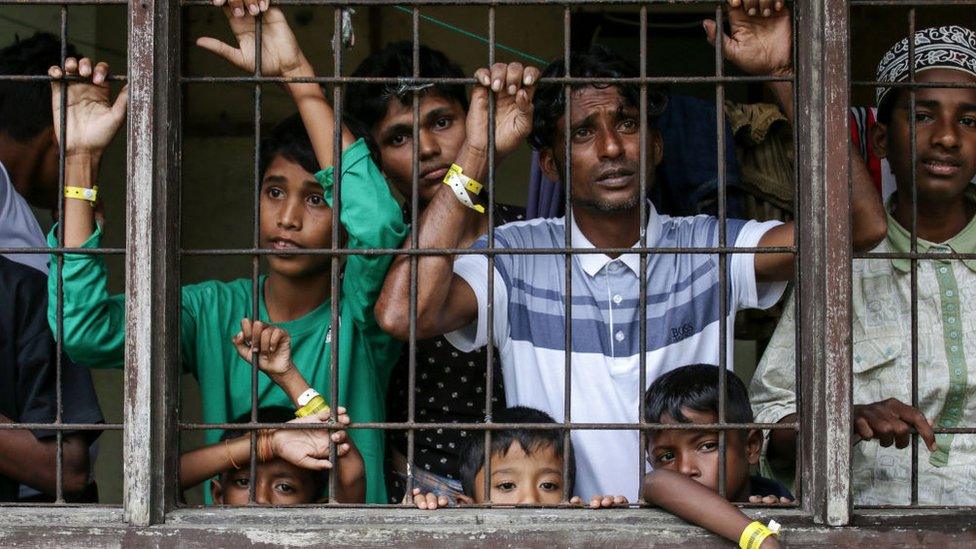
Around 500 Rohingyas packed in an unused immigration building as a temporary shelter
Indonesia accepts Rohingyas "solely for humanitarian reasons" even if it is not obliged to do so, according to Lalu Muhammad Iqbal, a foreign ministry spokesman. The country is not a signatory to the UN's 1951 Refugee Convention.
"These shelters are short term and not permanent solutions," he said, stressing the need to resolve the root of the problem in Myanmar.
Aside from spiralling gang violence, Rohingyas in Cox's Bazar have had to deal with a cut in their monthly food vouchers to $8 from $12 last June. Weeks before that, powerful Cyclone Mocha destroyed many of their homes.
Rohima Khatoum, who arrived on the same boat as Ms Fatoum in November, recalled living amid gangs at Cox's Bazar just before she left.
"They threatened to kill our children, rape our mothers and daughters. They took my child and asked for money. They killed one of my children and dumped his body," Ms Khatoum told the BBC.
Ms Khatoum said the conditions in Aceh's shelters are much better than in Bangladesh.
"I was sure I was going to die in the sea," she said, recalling how Aceh locals pushed her boat back to the sea.
"But I am here now and I feel better."

Related topics
- Published24 August 2023
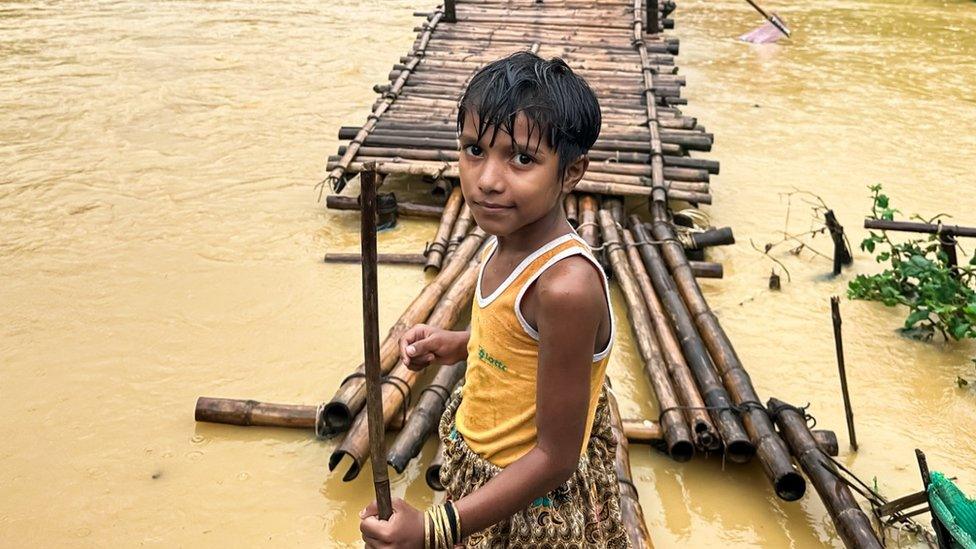
- Published15 May 2023
